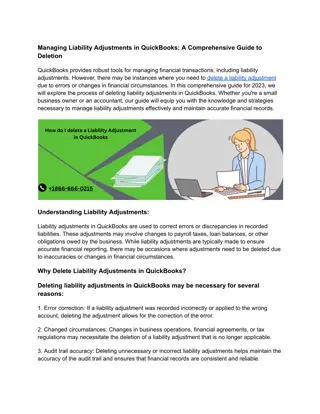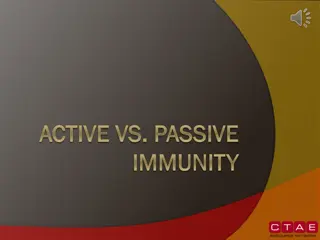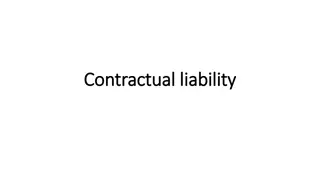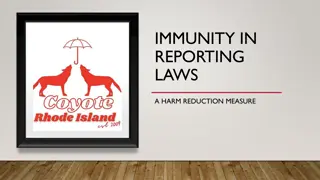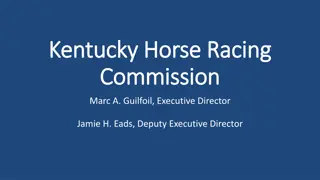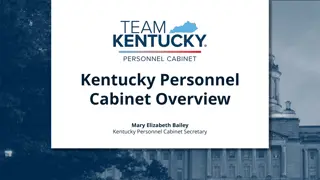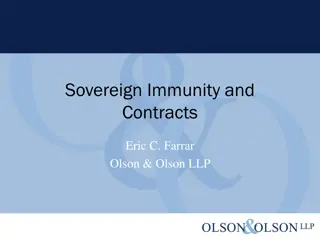Legal Immunity and Liability in Kentucky State
Analysis of legal principles regarding immunity and liability in the Commonwealth of Kentucky, including factors such as public immunity, official immunity, and governmental employee liability. The content discusses scenarios where immunity may apply and exceptions where personal liability can be imposed on government employees. Reference to the role of the Kentucky Transportation Cabinet (KYTC) in providing legal representation in certain situations is also included.
Download Presentation

Please find below an Image/Link to download the presentation.
The content on the website is provided AS IS for your information and personal use only. It may not be sold, licensed, or shared on other websites without obtaining consent from the author.If you encounter any issues during the download, it is possible that the publisher has removed the file from their server.
You are allowed to download the files provided on this website for personal or commercial use, subject to the condition that they are used lawfully. All files are the property of their respective owners.
The content on the website is provided AS IS for your information and personal use only. It may not be sold, licensed, or shared on other websites without obtaining consent from the author.
E N D
Presentation Transcript
Presenter : Kevin Moore, Esq. General Counsel KYTC, OLS Frankfort, KY
KY State Courts: Circuit Court, Court of Appeals, and Supreme Court KY Board of Claims (KRS Chap. 44) Federal Courts: U.S. District Court, Eastern District of KY, Western D KY, Sixth Circuit Court of Appeals, U.S. Supreme Court
Commonwealth of Kentucky is immune from being sued in its own courts without its consent. KRS 44 waiver; Amendment (relates to suits against state in federal court) compare 11th
Public immunity when required to make good faith judgment calls in environment. Qualified official immunity negligent performance by a public employee of (1)discretionary acts of functions, i.e. those involving the exercise of discretion or personal deliberation, decision, and judgment; (2) in good faith; and (3) within the scope of the employee s authority. An act is not necessarily discretionary just because the employee performing it has some discretion with respect to the means or method to be employed. employees have a qualified legally official uncertain applies to the
A government employee is not immune from personal liability performance of a ministerial act, i.e. one that requires only obedience to the orders of others, or when the officer s duty is absolute, certain, and imperative, involving merely execution of a specific act arising from fixed and designated facts. Policy: New case: If fail to follow written policy then personal liability; Mattingly case. Known or should have known that the act or omission violated clearly-established constitutional or statutory rights or duty created by regulation or policies for the negligent
If requested by an employee or former employee KYTC MAY provide attorney for individually, in their official capacity, or both due to An act or omission made in the scope and course of employment as state employee employee sued
Inspection for dead trees in the absence of actual notice is not a ministerial act. act is ministerial it is necessary to determine whether the acts involve policy-making significant judgment, or are mere routine duties. The fact that an agency occasionally or even regularly engages in a particular act does not necessarily mean that the act is a routine duty not involving significant interpretation, or policy-making However, in some situations an act may be ministerial even if that covered by applicable statues, or administrative regulations. Actual notice of the dead tree may make the act ministerial. To determine if an decisions and judgment, statutory decisions. act is not specifically



